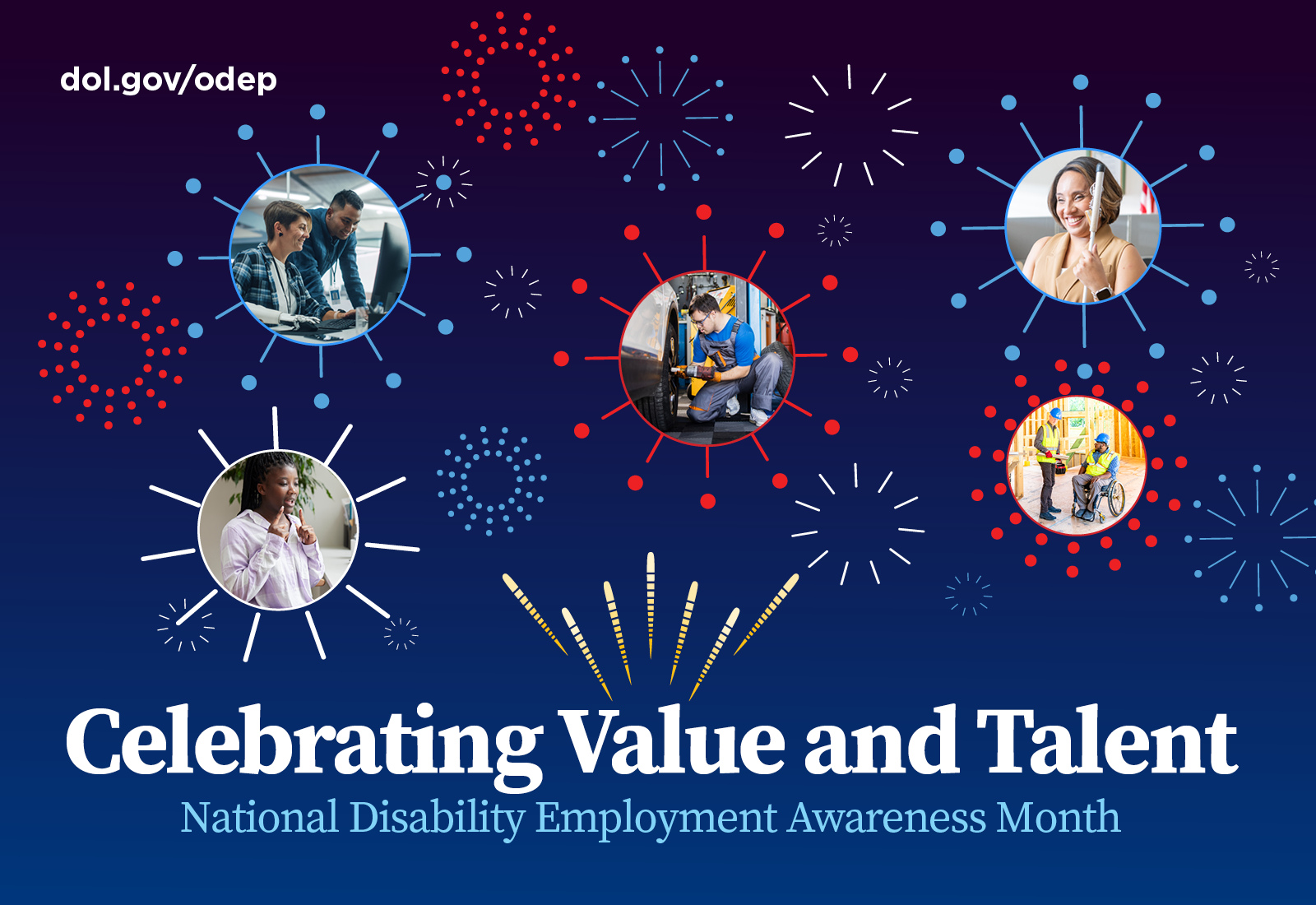
Every October, we recognize National Disability Employment Awareness Month (NDEAM). It's a time to celebrate the contributions of workers with disabilities, raise awareness about ongoing barriers, and recommit to creating inclusive workplaces.
This year, the message matters more than ever. The current administration’s recent policy shifts are reshaping the landscape for disability rights and employment, making awareness, advocacy, and action more critical than ever. Here’s what you need to know and what you, as a business, employer, or citizen, can do.
Why NDEAM is More Important Than Ever
NDEAM isn’t just about celebration. It’s about vigilance, action, and accountability. This is why it matters:
- To protect hard-won rights.
Many disability employment protections rest not only on law but also on regulations, guidance, and robust enforcement. When guidance is removed or enforcement offices reduce staff, the legal protections may remain on paper, but their effectiveness erodes. - To ensure fair pay and opportunity.
The decision to maintain subminimum wages sends a message that some people with disabilities are okay with less pay. That undermines equality and dignity, and it risks perpetuating cycles of poverty and exclusion. - To combat stigma and improve culture.
When leadership devalues DEIA or deems it illegal or unnecessary, it sends a ripple effect throughout the organization. Employers, HR teams, and managers may unintentionally deprioritize accommodations or inclusive practices. NDEAM can help shift or sustain culture toward inclusion. - To give voice to impacted people.
Many individuals with disabilities, their families, and disability-rights advocates are raising an alarm. NDEAM provides a platform to share stories, highlight challenges, and mobilize support. Awareness matters, especially when legal and institutional safety nets appear to be under stress. - To guide employers toward best practices.
Companies that genuinely incorporate inclusivity will reap the benefits. Diverse and accessible workforces bring innovation, broader perspectives, and improved customer alignment. There’s also increasing consumer and investor interest in social responsibility.
What Employers & Advocates Can Do
Here are concrete steps that can make a difference during NDEAM and beyond:
- Audit policies and processes.
Examine job postings, hiring, promotion, accommodation request procedures, and performance reviews for potential barriers to prospective or current employees. Are there assumptions or requirements that unnecessarily exclude people with disabilities?
For example, job postings often include valid driver’s license required even when the position doesn’t involve driving. For people with visual or mobility disabilities, that’s an instant disqualifier even if the role is fully remote or involves skills entirely unrelated to transportation. This kind of requirement unintentionally excludes qualified candidates who could do the job with no impact on performance. A better approach is to list the actual job function, for example, the ability to attend client meetings at various locations, and let candidates determine how they would meet that requirement.
- Train leadership and staff.
Refresh your entire organization's training on ADA obligations, accommodations, disability etiquette, and unconscious bias. Ensure that leadership communicates that inclusion is a core value of the organization, not just a matter of compliance. - Ensure transparency and channels for feedback.
Whenever possible, involve professionals with disabilities to provide authentic accessibility assessments. Establish safe and confidential channels for employees to report instances of discrimination or accessibility issues. Having multiple reporting channels (formal and informal) increases trust because one size doesn’t fit all when it comes to comfort levels. For example:
- Anonymous Employee Hotline, third-party managed - A 24/7 confidential phone line or digital reporting tool run by an independent vendor.
- Secure Online Reporting Portal - An encrypted web platform where staff can log discrimination or accessibility issues, track the status of their report, and stay anonymous if they choose.
- Designated Mediator or DEI / Accessibility Officer - A neutral, trained point of contact within the company who provides confidential listening, guidance, and next steps.
- Anonymous Employee Hotline, third-party managed - A 24/7 confidential phone line or digital reporting tool run by an independent vendor.
- Support equitable pay and employment quality.
If your organization contracts with federal or state governments, review how policy changes might affect compliance. Consider going beyond the minimum legal standards to ensure that the pay, working environment, and opportunities for employees with disabilities are genuinely equitable. - Advocate and partner.
Support local and national advocacy groups, share resources, lobby for the retention and strengthening of protections, and engage in public policy. Build partnerships to increase awareness, offer mentorships or internships to people with disabilities, and amplify their voices. - Celebrate contributions and stories. Spotlight the achievements of your employees with disabilities as integral parts of your operations. Share stories with authenticity. Representation helps change narratives.
NDEAM always plays a vital role, but in our current political environment, it plays a pivotal one. With the protective scaffolding, guidance, enforcement, and inclusive policy being chipped away in several arenas, there’s a real danger of backsliding unless awareness is paired with action. This isn’t just about compliance. It’s about fairness, and about ensuring we live in a society that values every worker.
Resources:
- Disability@Work: A Framework for Employing People with Disabilities
- Year-Round Employer Strategies for Advancing Disability Employment
A human author creates the DubBlog posts. The AI tools Gemini and ChatGPT are sometimes used to brainstorm subject ideas, generate blog post outlines, and rephrase certain portions of the content. Our marketing team carefully reviews all final drafts for accuracy and authenticity. The opinions and perspectives expressed remain the sole responsibility of the human author. (Updated Sept. 15, 2025)
